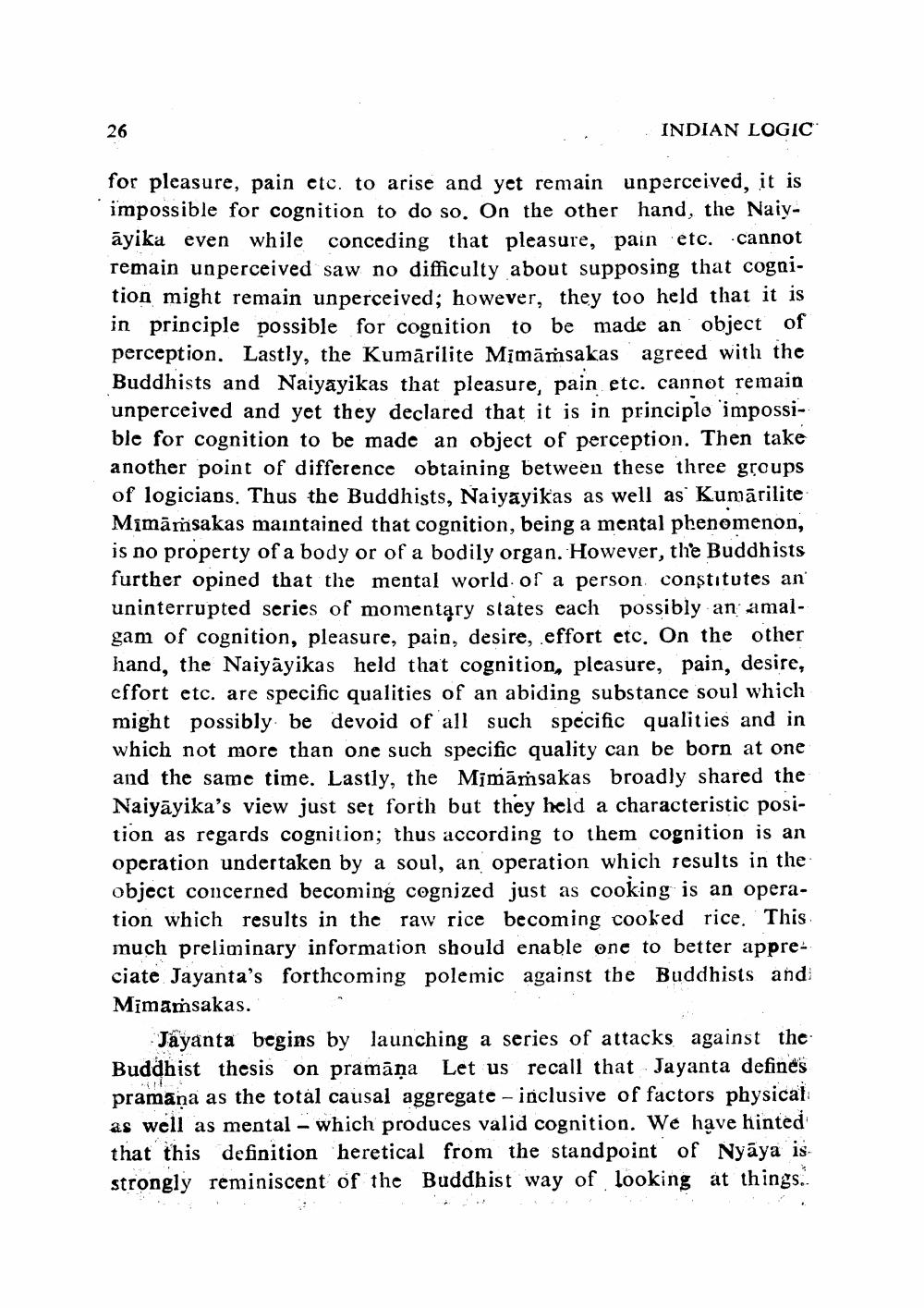________________
26
INDIAN LOGIC
for pleasure, pain etc. to arise and yet remain unperceived, it i impossible for cognition to do so. On the other hand, the Naiyāyika even while conceding that pleasure, pain etc. cannot remain unperceived saw no difficulty about supposing that cognition might remain unperceived; however, they too held that it is in principle possible for cognition to be made an object of perception. Lastly, the Kumārilite Mimāṁsakas agreed with the Buddhists and Naiyayikas that pleasure, pain etc. cannot remain unperceived and yet they declared that it is in principlo 'impossible for cognition to be made an object of perception. Then take another point of difference obtaining between these three groups of logicians. Thus the Buddhists, Naiyayikas as well as Kumārilite Mimāṁsakas maintained that cognition, being a mental phenomenon, is no property of a body or of a bodily organ. However, tlie Buddhists further opined that the mental world of a person constitutes an uninterrupted series of momentary states each possibly an amalgam of cognition, pleasure, pain, desire, effort etc. On the other hand, the Naiyāyikas held that cognition, pleasure, pain, desire, effort etc. are specific qualities of an abiding substance soul which might possibly be devoid of all such specific qualities and in which not more than one such specific quality can be born at one and the same time. Lastly, the Mimāṁsakas broadly shared the Naiyāyika's view just set forth but they held a characteristic position as regards cognition; thus according to them cognition is an operation undertaken by a soul, an operation which results in the object concerned becoming cognized just as cooking is an operation which results in the raw rice becoming cooked rice. This much preliminary information should enable one to better appreciate Jayanta's forthcoming polemic against the Buddhists and Mimamsakas.
Jayanta begins by launching a series of attacks against the Buddhist thesis on pramāņa Let us recall that Jayanta define's pramana as the total causal aggregate - inclusive of factors physical as well as mental - which produces valid cognition. We have hinted that this definition heretical from the standpoint of Nyāya isstrongly reminiscent of the Buddhist way of looking at things.




